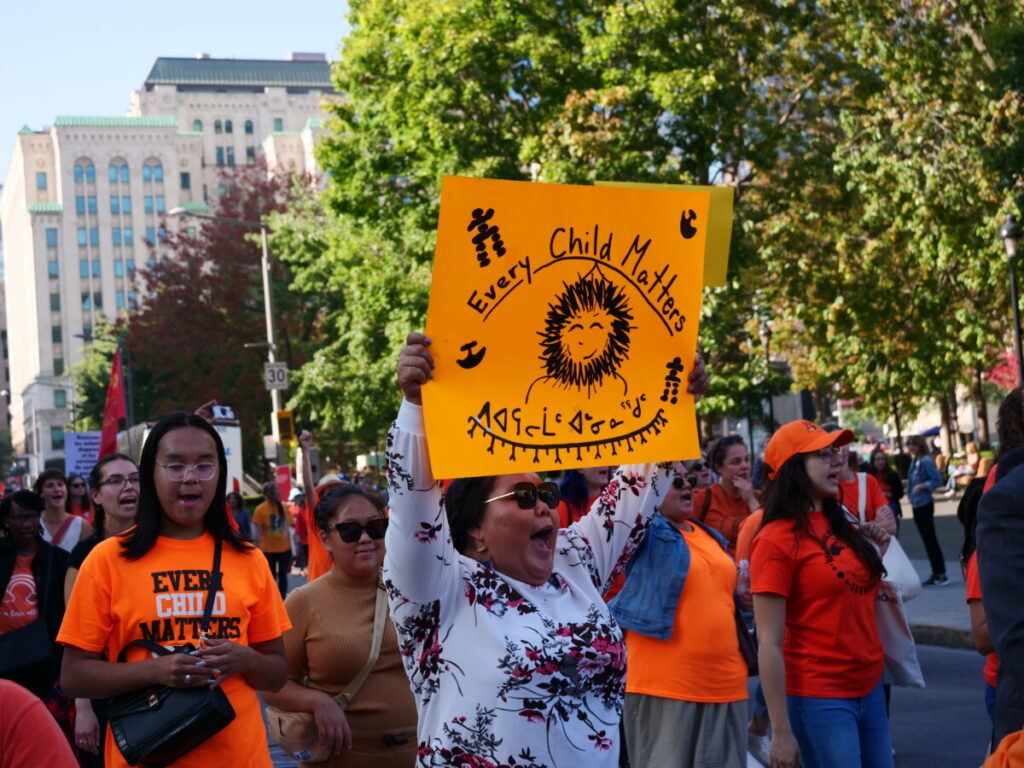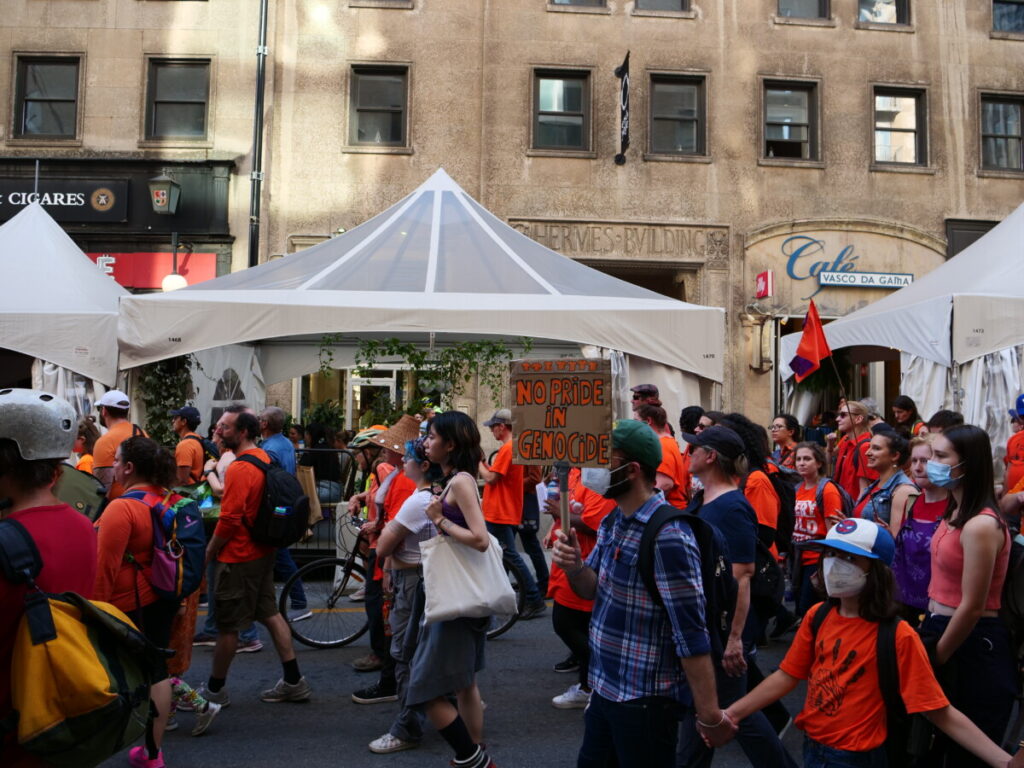Activists say there is still a lot to be done to decolonize our institutions.
Last Saturday, on Sept. 30, wave after wave of orange swept across the streets of Montreal, as a crowd gathered to celebrate the third National Day for Truth and Reconciliation.
This day is one of commemoration for the Indigenous children who were taken away from their families to be sent to residential schools, many of which never came home. At the march on Saturday, Indigenous activists and allies honoured these children and called on governments and institutions to do more to decolonize their work.
Kai and Mia Fischlin, two sisters of Inuvialuit and Dene descent, were present at the march. Mia was the first in her family to get involved in the activist movement and had invited Kai to join her at the march.
Kai is a Concordia student in biology, and Mia is an alumni who graduated in human relations. According to the former, it’s important for these marches to continue, year after year, especially with the continued discovery of unmarked graves throughout Canada. “And there’s still a lot to fix within the communities, the Indigenous communities all over Canada. I don’t think [the marches] are ever gonna stop until we see real change,” she said.
“Colonization didn’t happen long ago, and it’s still happening,” added Mia. “Me and my sister, we’re the first generation in our family to not go to the residential schools since it started. There’s just so much change that needs to happen, and it needs to come from everyone. It’s a lot on Indigenous people’s backs to be the only ones pushing forward, so we need everyone’s help.”
National Truth and Reconciliation Day was implemented by the federal government in 2021 as one of the calls to action of the Truth and Reconciliation Commission.
In response to these calls to action, Concordia University published its Indigenous Directions Action Plan in 2019. Manon Tremblay, senior director of Concordia’s Office of Indigenous Directions, is happy with the progress Concordia has made in the last four years, but believes there is still much to be done. “We can’t sit on our laurels,” she said. “We have to continue that momentum, and we have to be able to deliver on these recommendations and these promises.”
Concordia currently has 12 Indigenous faculty members and seven Indigenous staff members—including Tremblay, who is a member of the Muskeg Lake Cree Nation in Saskatchewan. Tremblay believes continuous action is necessary to decolonize Concordia and make it more than “inclusive.”
“Personally, I don’t like the word ‘inclusion,’” explained Tremblay. “I find that ‘inclusion’ is a word that basically says that it’s still their house. And we’re still guests in that house, and we still have to adhere to their rules. What we’re looking to do really is foster a sense of belonging.”
Brina Rosenberg and Meika Blayone, two friends who attended the march, believe that the educational sector plays a major role when it comes to leading the movement of decolonization.
“Knowing that the research that you can do includes oral storytelling as a resource that counts is super important, and I feel like that’s missing in a lot of university courses,” said Rosenberg. “Especially in history, knowing that oral history is just as important as written history is extremely important.”
Blayone, who is Metis from Saskatchewan, believes Indigenous realities are erased from educational institutions. According to her, language laws in Quebec make this even worse. “French is super important, but where’s the Indigenous languages? Why are we not learning those? Why are they not an official government language?” she asked.
Kai and Mia Fischlin encouraged Concordia students to support Indigenous communities whenever and wherever they can, even if it just means sharing a post on social media.
“And if you see some racism going on, don’t be afraid to call them out, cause it’s a lot for Indigenous people to always fight for themselves as well, and feel alone,” said Mia.






